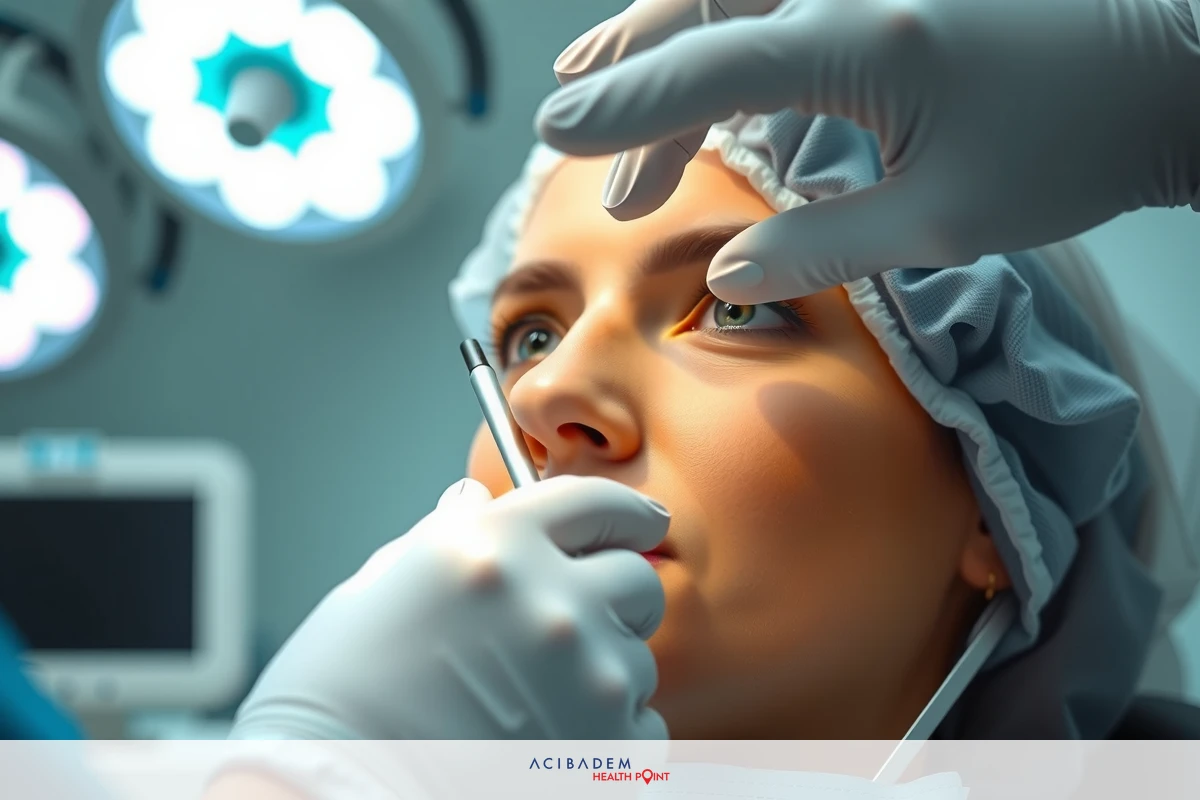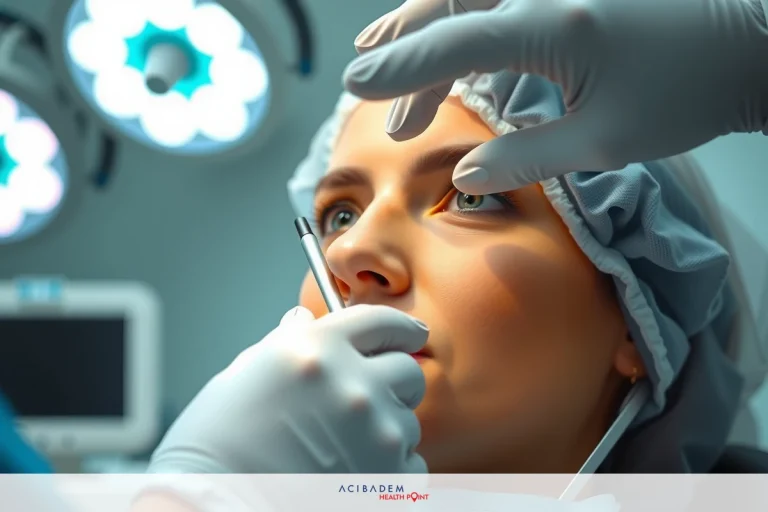Plastic Surgery Chicago Rhinoplasty
Plastic Surgery Chicago Rhinoplasty Rhinoplasty is a specialized form of plastic surgery that helps to reshape and resize the nose. This procedure is gaining popularity in various parts of the world, including Chicago. With the city’s advanced medical facilities and highly skilled surgeons, it offers comprehensive services for those considering this transformative procedure.
Choosing to undergo rhinoplasty is a significant decision that requires careful consideration. It’s crucial to understand what the procedure involves, from selecting the right surgeon to understanding the aftercare requirements. This piece aims to provide useful information about rhinoplasty in Chicago, assisting individuals in making an informed decision about this life-changing procedure.
Benefits of Plastic Surgery in Chicago
Chicago, known for its advanced medical facilities and top-notch surgeons, is an excellent place to consider for plastic surgery procedures, especially rhinoplasty. The city boasts a high number of board-certified plastic surgeons with extensive experience and training in rhinoplasty. These professionals are dedicated to providing the highest standards of care and achieving the best possible aesthetic results for their patients. They adopt the latest surgical techniques and technology to ensure the procedure is safe and efficient.
Another benefit of undergoing plastic surgery in Chicago is the extensive consultation process provided by the surgeons. They take the time to understand the patient’s goals and expectations from the procedure. This initial interaction allows both parties to develop a personalized plan that aligns with the patient’s desires and medical history. Furthermore, these consultations also provide an opportunity for patients to ask questions and resolve any concerns or fears they may have about the surgery.

In terms of aftercare, Chicago plastic surgeons and their teams offer comprehensive follow-up services to monitor recovery progress. They provide detailed instructions on post-operative care, medication, and lifestyle modifications required for a smooth recovery. In addition, they can connect patients with support groups where they can share experiences and coping strategies with others who have undergone similar procedures. This level of care not only aids in quicker recovery but also ensures a comfortable and positive experience throughout the journey.
Choosing the Right Plastic Surgeon
Selecting the right plastic surgeon for rhinoplasty in Chicago is crucial to accomplishing your aesthetic goals. One of the first things to consider is board certification. A surgeon with a certification from the American Board of Plastic Surgery has undergone rigorous training and testing in their field, ensuring they possess the necessary skills and knowledge. In addition, this certification ensures that the surgeon adheres to strict safety standards and ethical practices.
Experience in performing rhinoplasties is another essential factor to consider when choosing a plastic surgeon. Rhinoplasty is a complex procedure that requires a high level of skill and precision. Therefore, it’s advisable to choose a surgeon who has extensive experience in performing this particular operation. You can gauge their expertise by asking about the number of rhinoplasty procedures they have performed, viewing before-and-after photos of previous patients, and reading reviews and testimonials.
Lastly, consider the surgeon’s communication style and approachability. You should feel comfortable discussing your concerns and questions with them, and they should be able to provide clear, understandable answers. A good surgeon will take the time to learn about your aesthetic goals, discuss realistic outcomes, explain the procedure in detail, and guide you through the decision-making process. Remember that plastic
surgery is a significant commitment, so it’s crucial to choose a surgeon who makes you feel confident and at ease with your decision.
Recovery and Aftercare
The recovery period following a rhinoplasty procedure is crucial for achieving the best possible results. Immediately after surgery, patients can expect some swelling and discomfort; however, these symptoms typically subside within a week or two. During this time, it’s important to rest and refrain from strenuous activities to promote healing. Your surgeon will provide specific instructions about post-operative care, including how to clean the surgical site and when to resume normal activities.
A significant aspect of recovery involves regular follow-up appointments with your surgeon. These meetings allow your surgeon to assess your healing progress and address any potential complications promptly. It’s important to adhere to these appointments diligently and to communicate openly with your surgeon about any concerns or changes you notice. Remember, every individual heals differently, so your recovery timeline might differ slightly from standard estimates.
Aftercare also includes certain lifestyle modifications that contribute to a smooth recovery. These may involve refraining from smoking, ensuring proper nutrition, staying hydrated, and getting adequate sleep. Following these guidelines can significantly enhance your body’s ability to heal and reduce the risk of complications. Keep in mind that plastic surgery is not just about the procedure itself but also about taking care of yourself post-operatively to ensure optimal results.
Frequently Asked Questions
How long does the recovery period typically last after rhinoplasty?
The recovery period for rhinoplasty varies from person to person, but on average, it takes about 1-2 weeks for the initial swelling and bruising to subside. However, complete healing and resolution of swelling can take several months. It's important to follow your surgeon's post-operative instructions and attend all scheduled follow-up appointments for proper monitoring.
Will I have visible scars after rhinoplasty?
In most cases, the incisions made during rhinoplasty are hidden inside the nose or along the natural creases of the nostrils, resulting in minimal visible scarring. However, it's essential to discuss the specifics with your surgeon during your consultation, as certain techniques may require external incisions that could leave minor, inconspicuous scars.
Are there any risks or potential complications associated with rhinoplasty?
Like any surgical procedure, rhinoplasty carries some risks. Potential complications may include infection, bleeding, adverse reactions to anesthesia, asymmetry, changes in sensation, or dissatisfaction with the aesthetic outcome. However, by choosing a qualified and experienced plastic surgeon and following their pre- and post- operative instructions carefully, you can minimize these risks.
When can I return to work or resume my normal activities after rhinoplasty?
The timing for returning to work or resuming normal activities depends on various factors, such as the extent of surgery and individual healing rates. Most patients can expect to return to work within 1-2 weeks after surgery, although strenuous activities and exercise should be avoided for at least several weeks to allow proper healing.
Can rhinoplasty help improve breathing difficulties?
Yes, rhinoplasty can address functional issues and improve breathing difficulties caused by structural abnormalities in the nose, such as a deviated septum. During your consultation, be sure to communicate any concerns you have regarding both the aesthetic and functional aspects of your nose, so that appropriate treatment options can be discussed with your surgeon.











